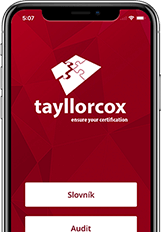 Linux System Administration Essentials (LFS207)
Linux System Administration Essentials (LFS207)
Linux is the #1 operating system for web servers, cloud computing, smart phones and consumer electronics. Due to its high adoption rates and continued growth, there’s a shortage of Linux system administrators. This course will teach you the skills and processes you need to work as a professional Linux systems administrator.
In this course you will learn how to administer, configure and upgrade Linux systems running one of the major Linux distribution families: Debian/Ubuntu and Red Hat/CentOS/Fedora, how to master the tools and concepts you’ll need to efficiently build and manage an enterprise Linux infrastructure, how to work with Git and perform essential collaborative tasks, how to use state-of-the-art system administration techniques in real-life scenarios via practical labs, and more.

Virtual Training nebo e-Learning?
Máme dostatečnou flexibilitu, takže vybírat můžete jak prezenční termíny, tak online kurzy.
Zkuste živý kurz virtuálněTarget group
The course is ideal for those new to IT, or those who have worked with operating systems other than Linux and want to move into a career administering Linux systems. Aspiring cloud professionals will also benefit from understanding Linux administration as it serves as the basis of most cloud instances.
If you don’t have any Linux experience, we highly recommend the free Introduction to Linux course on edX.
Course structure
- Chapter 1. Course Introduction
- Chapter 2. Linux Filesystem Tree Layout
- Chapter 3. User Environment
- Chapter 4. User Account Management
- Chapter 5. Group Management
- Chapter 6. File Permissions and Ownership
- Chapter 7. Package Management Systems
- Chapter 8. dpkg
- Chapter 9. APT
- Chapter 10. RPM
- Chapter 11. dnf and yum
- Chapter 12. zypper
- Chapter 13. Introduction to Git
- Chapter 14. Using Git: An Example
- Chapter 15. Processes
- Chapter 16. Process Monitoring
- Chapter 17. Memory Monitoring, Usage and Configuring Swap
- Chapter 18. I/O Monitoring and Tuning
- Chapter 19. Virtualization Overview
- Chapter 20. Containers Overview
- Chapter 21. Linux Filesystems and the VFS
- Chapter 22. Disk Partitioning
- Chapter 23. Filesystem Features: Attributes, Creating, Checking, Usage, Mounting
- Chapter 24. The Ext4 Filesystem
- Chapter 25. Logical Volume Management (LVM)
- Chapter 26. Kernel Services and Configuration
- Chapter 27. Kernel Modules
- Chapter 28. Devices and udev
- Chapter 29. Network Addresses
- Chapter 30. Network Devices and Configuration
- Chapter 31. LDAP
- Chapter 32. Firewalls
- Chapter 33. System Init: systemd, SystemV and Upstart
- Chapter 34. Backup and Recovery Methods
- Chapter 35. Linux Security Modules
- Chapter 36. System Rescue
Benefits
The topics covered are directly aligned with the knowledge domains tested by the Linux Foundation Certified Systems Administrator (LFCS) exam, and will substantially increase students’ ability to become certified.
Labs info
Lab exercises in this course are designed to work either on native hardware, or using a virtual machine (VM), under a hypervisor, such as those in the KVM, VMWare, or Virtual Box families. Detailed instructions to set up your lab environment are provided in the course.
Jak nás hodnotí
V čem jsou naše reference výjimečné? Nejsou to jednorázové akce. K nám se lidé vrací rádi a nezavírají před námi dveře.
Podívejte se na úplný seznam referenčních klientů, kteří na nás nedají dopustit.
Nejste si jisti, zda je tento kurz pro vás?
Zavolejte nám a my vám poradíme.
Jsme vám k dispozici na telefonním čísle +420 222 553 101 vždy od pondělí do pátku: 9:00 - 17:00.
Nemůžete volat? Zkuste nám napsat
Chcete získat dárek k narozeninám?


